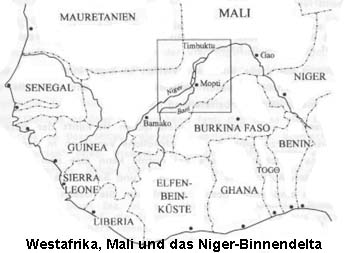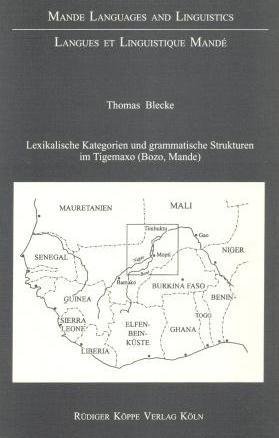



The present study is the first scientific monograph on one of the four Bozo languages that are spoken in the Niger inland delta in Mali and that belong to the West Mande language family. It is not only of theoretic but also of historico-linguistic value. The theoretical background of modern functionalism is presented in detail as far as it is relevant for the heuristic, the terminology and the overall structure of the study.
On the empirical basis of monological texts the linguistic entities are extracted and represented according to status, function and, if possible, to its tendency to grammaticalization. The lexical categories as units of the vocabulary are described together with their constituent structure. This includes the lexical morphology (derivation, composition, including incorporation) as well as the paradigms (for example alternating verbal stems for transitivity and aspect).
The clear distinction between noun and verb is described in detail and is employed on the Manding language. The implications for historical linguistics of West Mande in general are outlined. Syntax and semantics of simple non-verbal and verbal predications also contain those with complex predicates, especially serial verb constructions. Furthermore, the interdependence between vocabulary and syntax is stressed and therefore offers an alternative for a separate dealing with morphology, syntax, word and sentence semantics: the verbs are firstly sub-categorized according to transitivity and semantic properties. Proceeding from this, predication pairs are compared in which one verbal predicate with different syntacto-semantic use is included.
These transitivity alternations take into consideration changes in gender and transitivity changing techniques, but also the grammaticalization into a formal passive. This demonstrates how syntactic parallelles and their functional connections are systematically describable.
Under these links you will find publications of the author and further studies of transitivity in African languages:
© 2026 by Rüdiger Köppe Verlag – www.koeppe.de